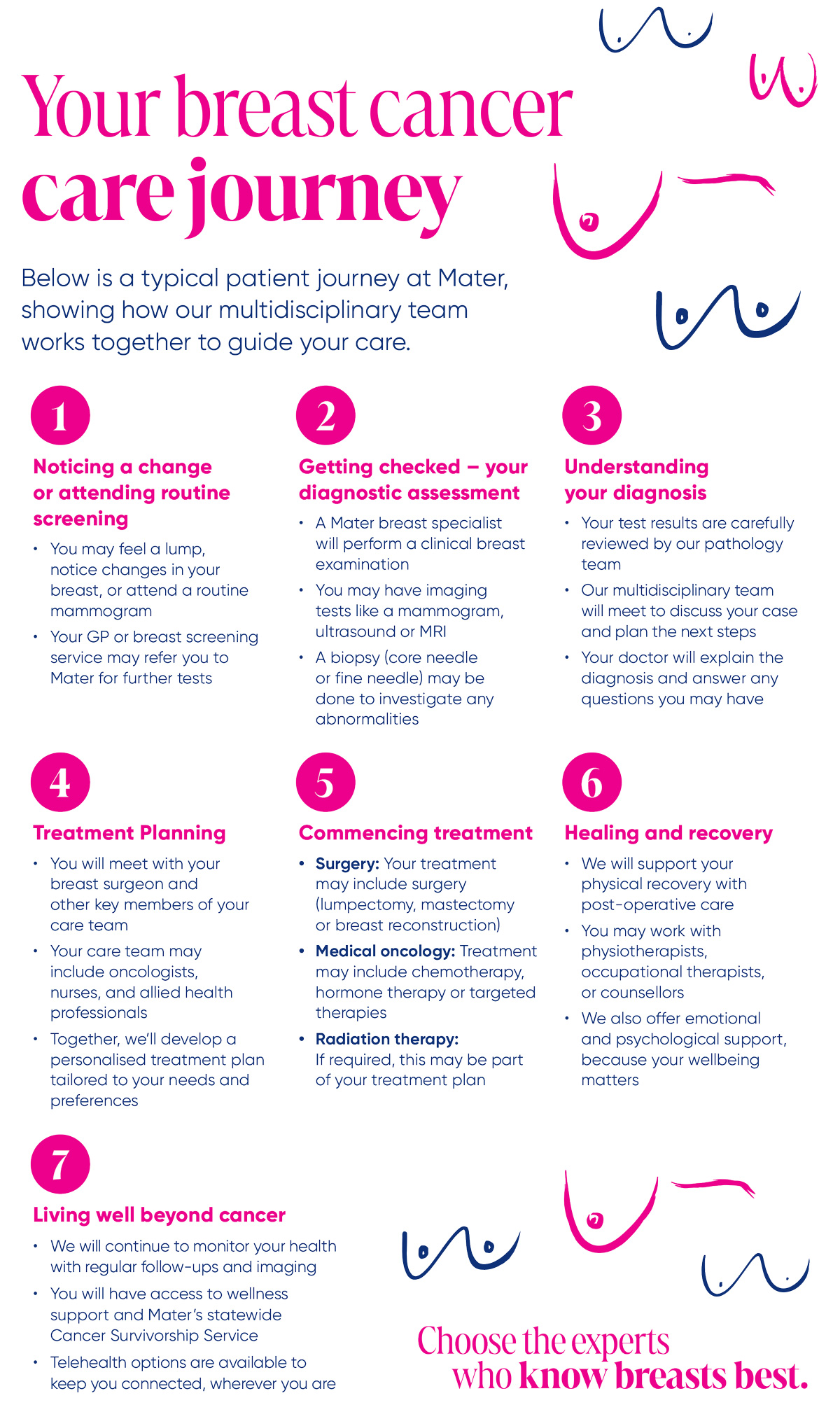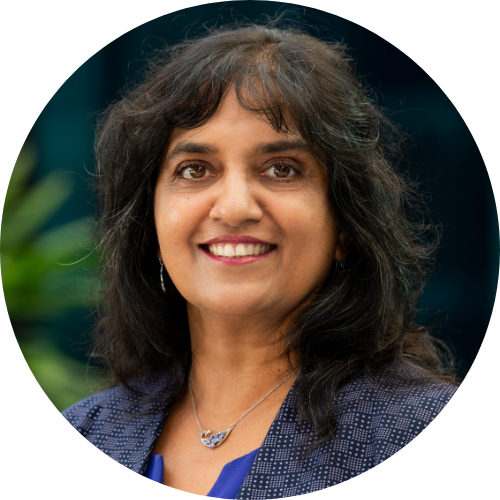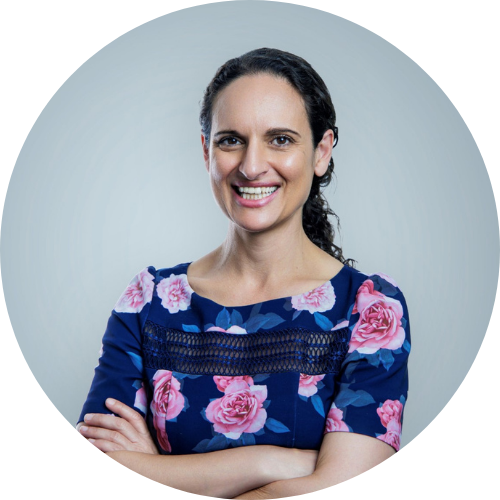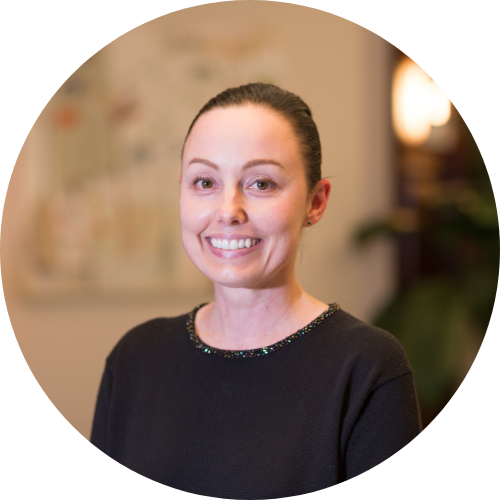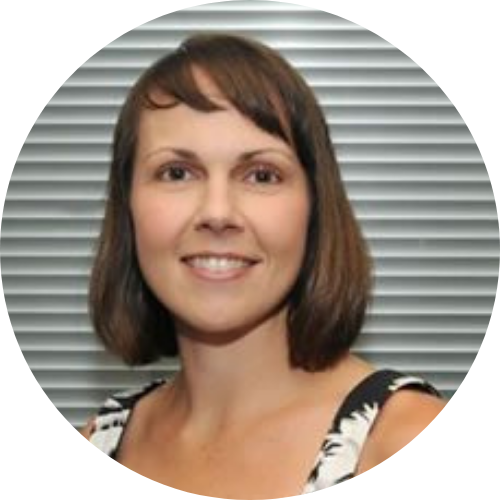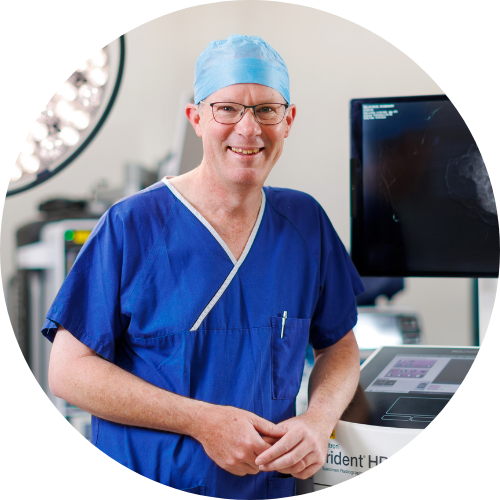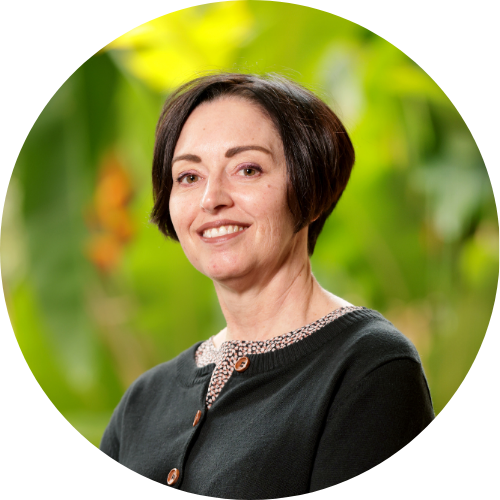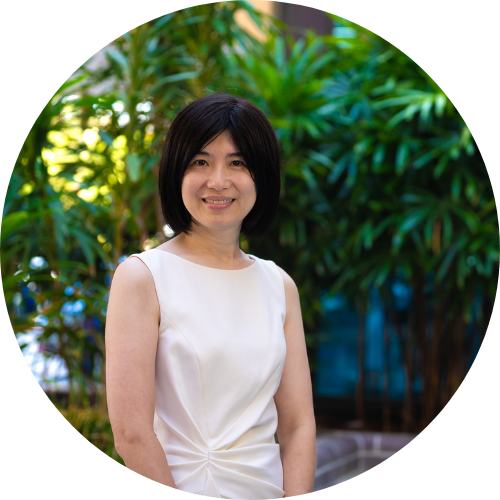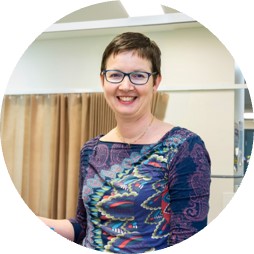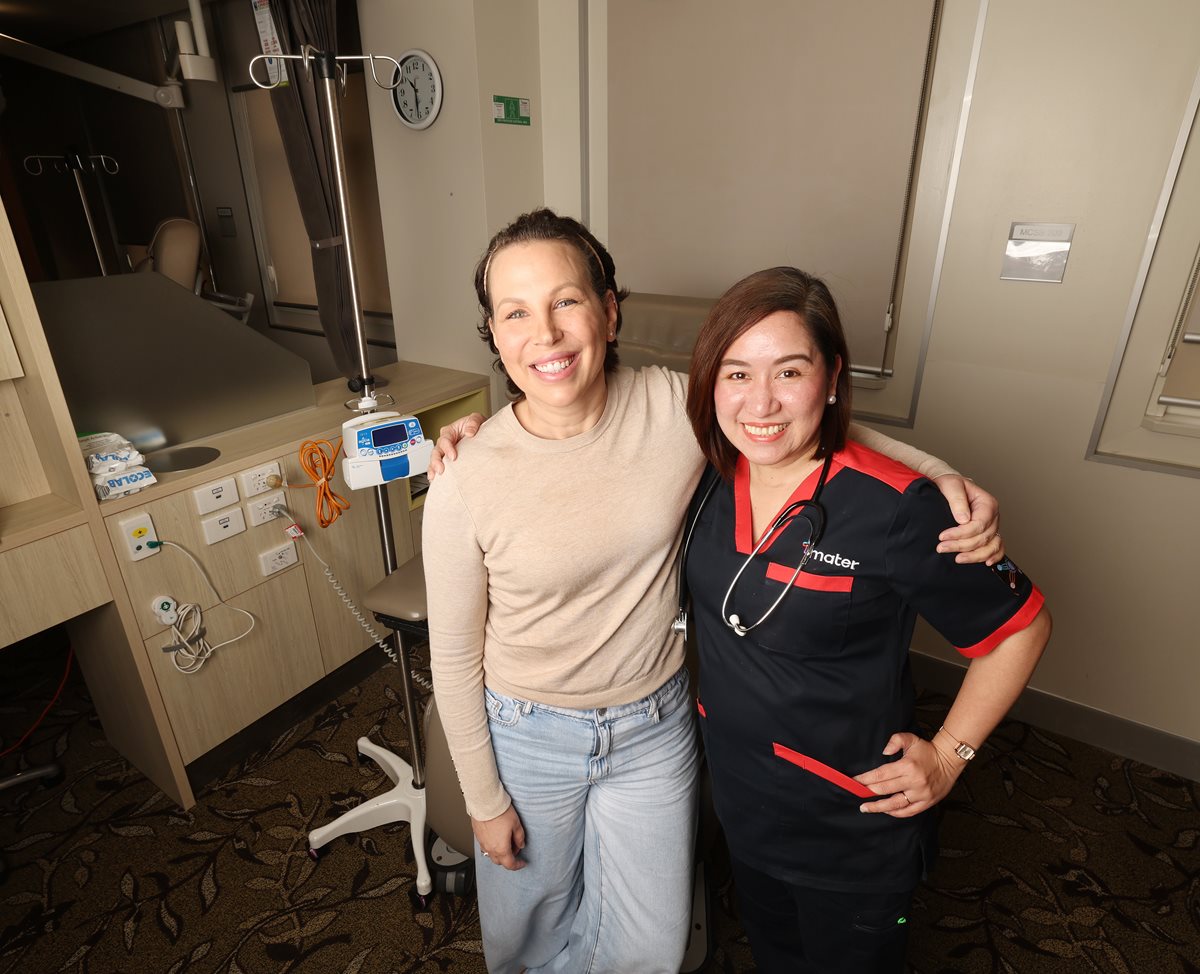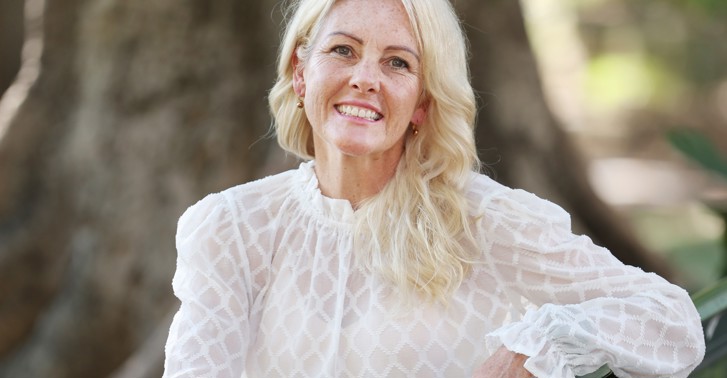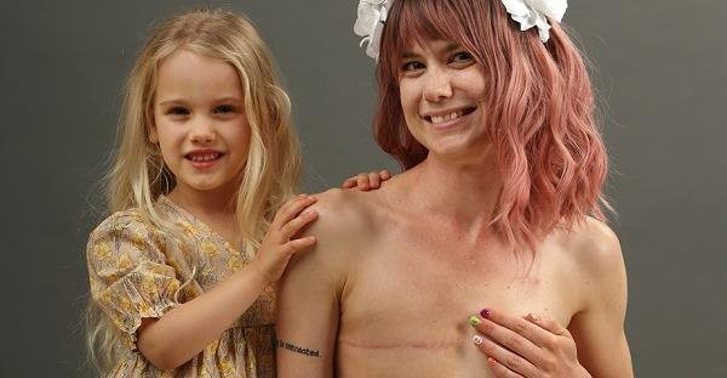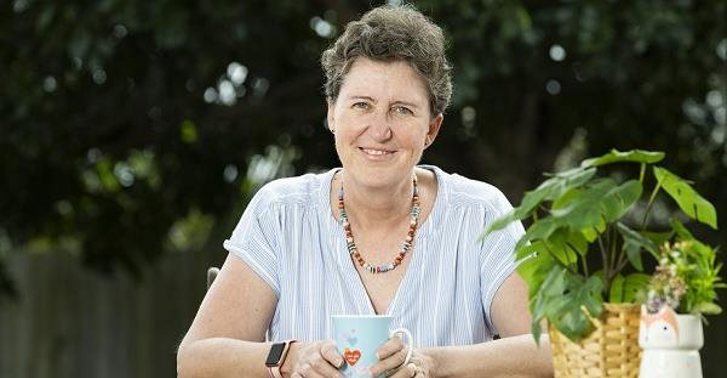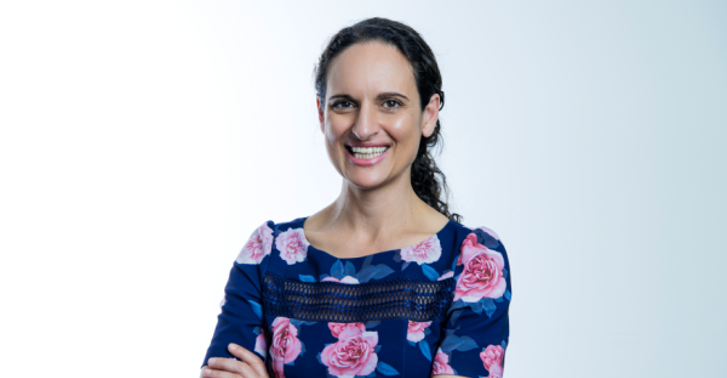Breast cancer care at Mater
Our statewide breast cancer services are delivered through a connected network of hospitals and specialist teams in Brisbane, Mackay, Rockhampton, Townsville, Springfield and Redland, so you can access expert care close to home.
This network is supported by Mater Cancer Care Centres, where patients from across Queensland can access advanced diagnostics, specialist treatment, personalised survivorship plans, and telehealth support.
Who at Mater is involved in your care
Your care at Mater is guided by a multidisciplinary team of specialists who collaborate to deliver the best possible outcomes. Depending on your needs, your team may include:
- Breast surgeons
- Plastic and reconstructive surgeons
- Clinical nurse consultants
- Medical oncologists
- Radiation oncologists
- Pathologists
- Dietitians
- Occupational therapists
- Physiotherapists
- Social workers
- Psychologists and psychiatrists

